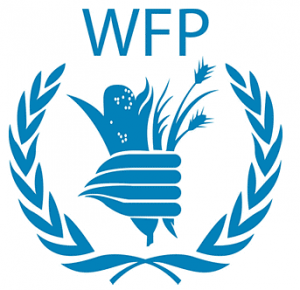Canadian government gives $15m support to Ghana food programme
 The Government of Canada has contributed 20 million Canadian dollars (US$15 million) to the United Nations World Food Programme (WFP) for a programme to assist almost one million people in Ghana over the next five years.
The Government of Canada has contributed 20 million Canadian dollars (US$15 million) to the United Nations World Food Programme (WFP) for a programme to assist almost one million people in Ghana over the next five years.
The WFP in Ghana said in a statement copied to ghanabusinessnews.com that the programme known as the Enhanced Nutrition and Value Chain (ENVAC) which would employ an interconnected approach, aims to promote sustainable agricultural production among smallholder farmers, who will then supply industrial and community-level food processors with good quality staple crops to be processed into fortified nutritious foods.
“Canada’s contribution will enable WFP to improve the nutritional status of 14,000 pregnant and nursing women, and 35,000 children, as well as boosting the income of smallholder farmers in the Ashanti, Brong-Ahafo, Northern, Upper East and Upper West Regions,” the World Food Programme said in the statement issued today, June 1.
“ENVAC is designed to help end hunger, by achieving food security, improving nutrition, and promoting sustainable agriculture, all within a single programme,” Magdalena Moshi, the Officer in Charge at the WFP Ghana said.
“Canada’s contribution is crucial as it has allowed us to be innovative and re-design our programmes to step up Ghana’s efforts to reach zero hunger, in line with Sustainable Development Goal 2.”
The Canadian High Commissioner, Christopher Thornley was quoted as saying: “Canada is very pleased to be a major supporter of this programme. ENVAC takes a market-oriented approach to increasing food production and improving nutrition by linking smallholders to agro-processors, building capacity, and encouraging product promotion. This is consistent with Ghana’s emerging status as a middle-income country.”
Malnutrition still remains a challenge, especially in the Northern Region where one in three children is said to be stunted and likely to suffer mental and physical damage. Anaemia among children is also very high, affecting four out of five children, according to the WFP.
The agency which supports government in carrying out activities such as school feeding, nutrition for vulnerable people and resilience programmes, says these issues can be addressed by placing more emphasis on programmes like the ENVAC which prevent stunting and micronutrient deficiencies during the first 1,000 days of a child’s life.
By Emmanuel Odonkor
Copyright © 2016 by Creative Imaginations Publicity
All rights reserved. This news item or any portion thereof may not be reproduced or used in any manner whatsoever without the express written permission of the publisher except for the use of brief quotations in reviews.
